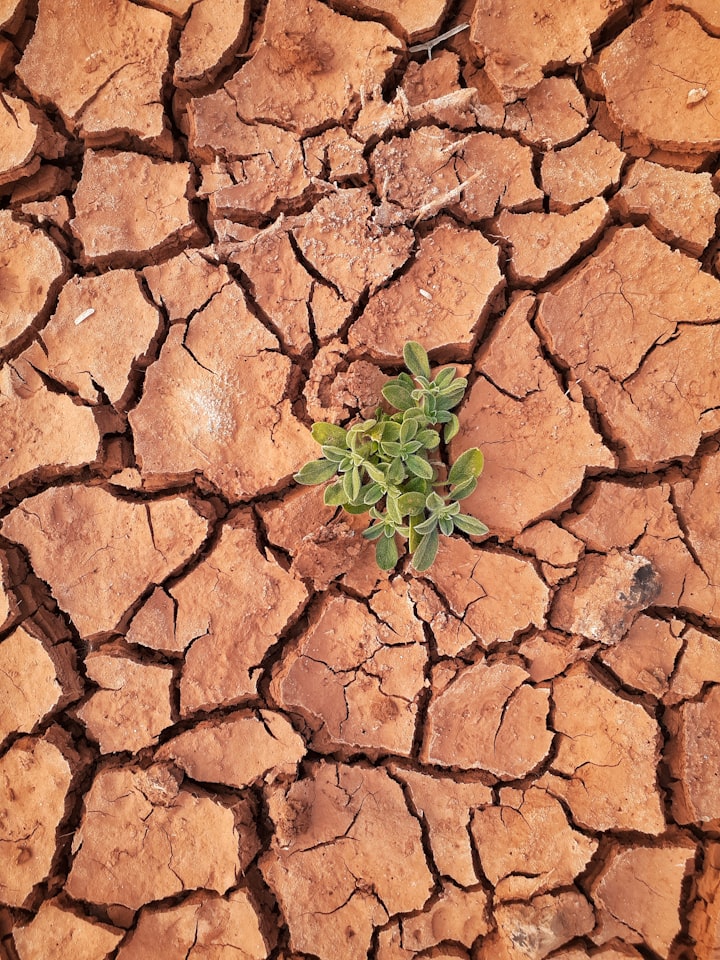
Global warming is the long-term warming of the planet’s overall temperature. Though this warming trend has been going on for a long time, its pace has significantly increased in the last hundred years due to the burning of fossil fuels. As the human population has increased, so has the volume of fossil fuels burned. Fossil fuels include coal, oil, and natural gas, and burning them causes what is known as the “greenhouse effect” in Earth’s atmosphere.
The greenhouse effect is when the sun’s rays penetrate the atmosphere, but when that heat is reflected off the surface cannot escape back into space. Gases produced by the burning of fossil fuels prevent the heat from leaving the atmosphere. These greenhouse gasses are carbon dioxide, chlorofluorocarbons, water vapor, methane, and nitrous oxide. The excess heat in the atmosphere has caused the average global temperature to rise overtime, otherwise known as global warming.
Global warming has presented another issue called climate change. Sometimes these phrases are used interchangeably, however, they are different. Climate change refers to changes in weather patterns and growing seasons around the world. It also refers to sea level rise caused by the expansion of warmer seas and melting ice sheets and glaciers. Global warming causes climate change, which poses a serious threat to life on Earth in the forms of widespread flooding and extreme weather. Scientists continue to study global warming and its impact on Earth.Global warming is the long-term heating of Earth’s surface observed since the pre-industrial period (between 1850 and 1900) due to human activities, primarily fossil fuel burning, which increases heat-trapping greenhouse gas levels in Earth’s atmosphere. This term is not interchangeable with the term "climate change."
Since the pre-industrial period, human activities are estimated to have increased Earth’s global average temperature by about 1 degree Celsius (1.8 degrees Fahrenheit), a number that is currently increasing by more than 0.2 degrees Celsius (0.36 degrees Fahrenheit) per decade. The current warming trend is unequivocally the result of human activity since the 1950s and is proceeding at an unprecedented rate over millennia.
What Is Climate Change?
Climate change is a long-term change in the average weather patterns that have come to define Earth’s local, regional and global climates. These changes have a broad range of observed effects that are synonymous with the term.
Changes observed in Earth’s climate since the mid-20th century are driven by human activities, particularly fossil fuel burning, which increases heat-trapping greenhouse gas levels in Earth’s atmosphere, raising Earth’s average surface temperature. Natural processes, which have been overwhelmed by human activities, can also contribute to climate change, including internal variability (e.g., cyclical ocean patterns like El Niño, La Niña and the Pacific Decadal Oscillation) and external forcings (e.g., volcanic activity, changes in the Sun’s energy output, variations in Earth’s orbit).
Scientists use observations from the ground, air, and space, along with computer models, to monitor and study past, present, and future climate change. Climate data records provide evidence of climate change key indicators, such as global land and ocean temperature increases; rising sea levels; ice loss at Earth’s poles and in mountain glaciers; frequency and severity changes in extreme weather such as hurricanes, heatwaves, wildfires, droughts, floods, and precipitation; and cloud and vegetation cover changes.The Intergovernmental Panel on Climate Change (IPCC) states that the increase in global atmospheric concentration of carbon dioxide (CO2) is primarily due to fossil fuel use and, in a smaller but still significant level, to land-use change.
An Inconvenient Truth, a documentary by former United States Vice-President Al Gore, has also drawn public attention to the critical issue of global warming and how the burning of fossil fuels has increased the amount of CO2 in the atmosphere. Global warming can result in many serious alterations to the environment, eventually impacting human health. It can also cause a rise in sea level, leading to the loss of coastal land, a change in precipitation patterns, increased risks of droughts and floods, and threats to biodiversity. The effects are already evident in areas like Nunavut, Canada, where Inuit hunters are facing survival challenges due to the thinning of the ice. Explorer Will Steger gives an account of hunters in the Baffin Island, who are faced with the dilemma of unsafe hunting due to ice loss, risking their lives to get in contact with sea animals.
Besides the visible effects on people's livelihoods, global warming is predicted to have a strong and adverse impact on human health. The populations of countries that have contributed the least to global warming are the most vulnerable to death and diseases brought about by higher temperatures. The coastlines along the Pacific Ocean and the Indian Ocean and in sub-Saharan Africa will be at higher risk of enduring the health effects of climate change.
The World Health Organization (WHO) reports that climate change is responsible for at least 150,000 deaths per year, a number that is expected to double by 2030. The effects of global warming will cause dire health consequences:
Infectious diseases. IPCC predicts that global warming will worsen human health conditions, especially in tropical regions. In places like Africa, an increase in temperature signifies an increase in mosquito populations, thus escalating the risk of malaria, dengue and other insect-borne infections. Other regions are also affected. The United States experienced varying levels of malaria outbreaks; in 2006, the United Kingdom was plagued by an outbreak of legionnaires' diseases -- a bacterial lung infection that scientists attribute to global warming. WHO states that global warming will also cause a major increase in insect-borne diseases in Europe. Countries like Azerbaijan, Tajikistan and Turkey might already be in the danger zone for mosquito-borne malaria. However, the ability to tolerate temperature changes differs from region to region. Richer societies can utilize technological advances; for example, the use of more powerful air conditioners and the construction of houses minimize heat retention. On the other hand, developing countries lack not only the technological know-how, but also the resources and public health systems, required to prevent such outbreaks.
Heatwaves. Prolonged periods of abnormally high temperatures can have serious health effects on vulnerable populations, such as the elderly and the sick. This was already seen during the 2003 heatwave in Europe, which claimed approximately 35,000 lives. In a study by Hadley Center for Climate Prediction and Research in the United Kingdom, scientists using computer models showed how greenhouse gas emissions have increased the likelihood of heatwaves. The most common health effect is hyperthermia or heatstroke that can be fatal if left untreated. IPCC predicts that global warming will lead to hot days, followed by nights of high temperatures.





Comments
There are no comments for this story
Be the first to respond and start the conversation.